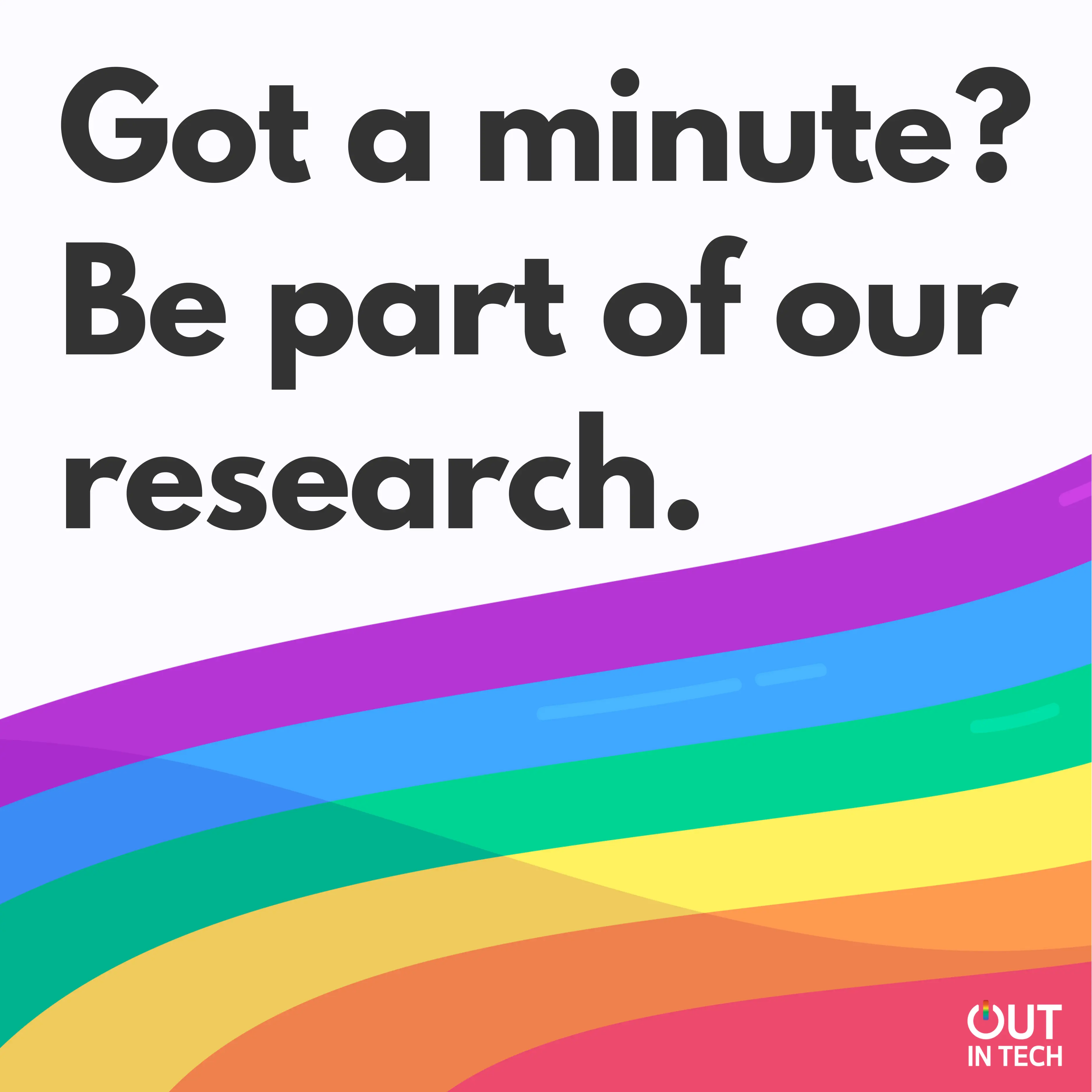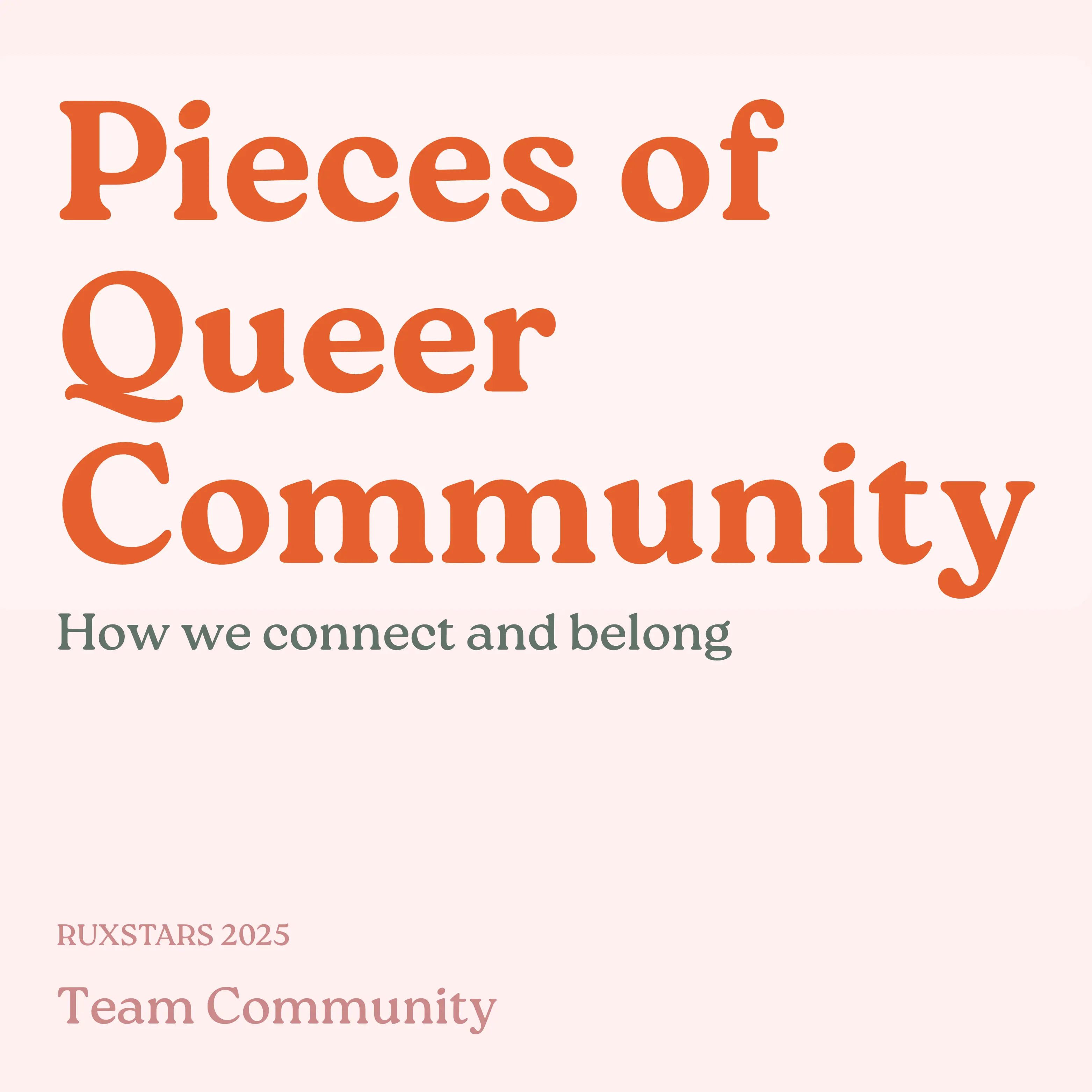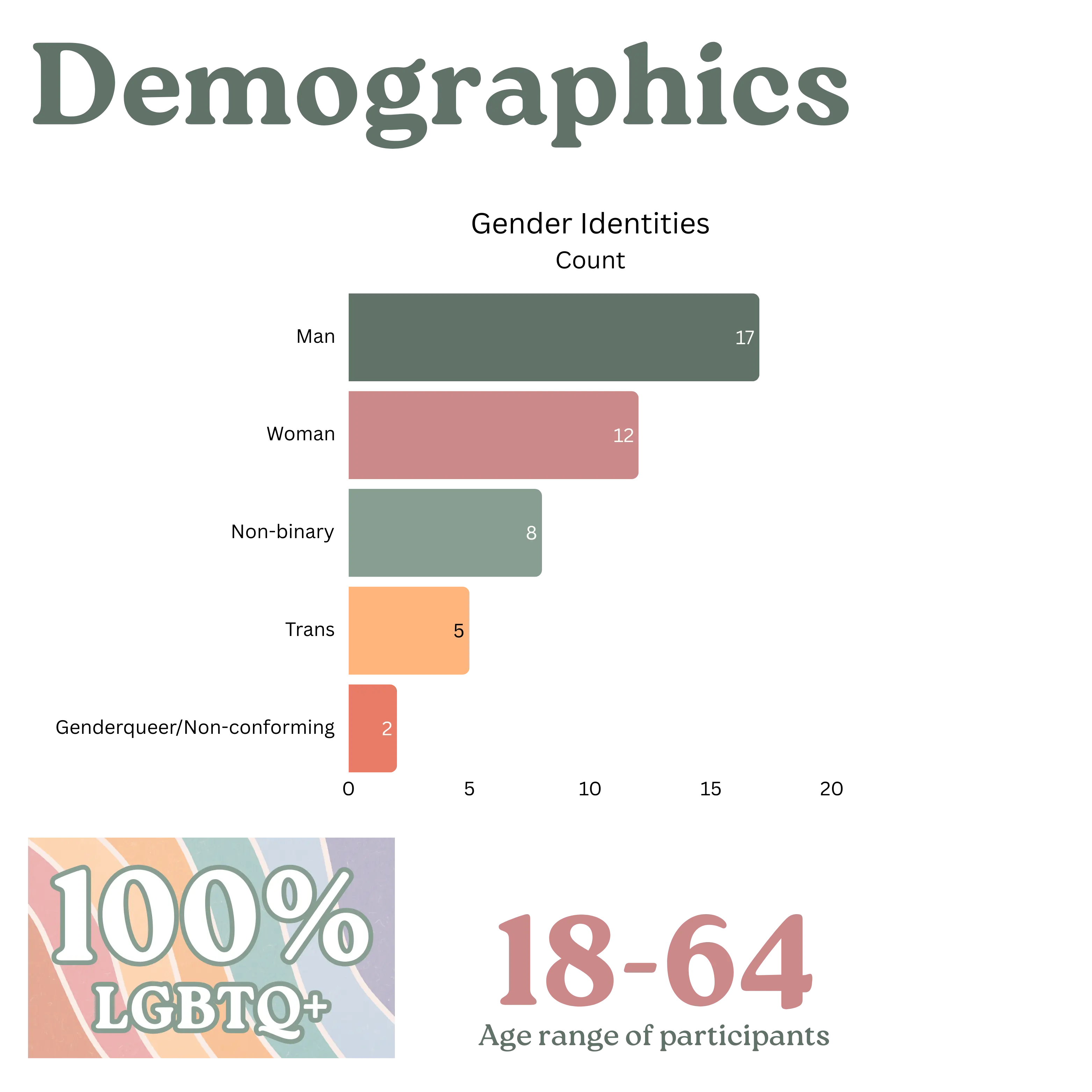Conclusion:
This project reinforced the importance of centering the lived experiences of queer community members in research. By combining interviews and surveys, we were able to uncover nuanced insights about how members experience connection, support, and inclusion, highlighting gaps that might not be visible through quantitative data alone.
Working as a team within RUXSTARS, we developed a research process that balanced rigor with empathy, ensuring participants felt safe and heard while generating actionable insights for community-building. For company Employee Resource Groups (ERGs), these findings are especially valuable: understanding the ways queer employees seek connection, career support, and safe spaces can guide ERGs in designing programs, events, and digital platforms that truly meet members’ needs.
Ultimately, this project deepened our understanding of what meaningful community looks like in queer contexts and informed strategies for fostering stronger social, career, and digital connections among LGBTQIA+ individuals.


